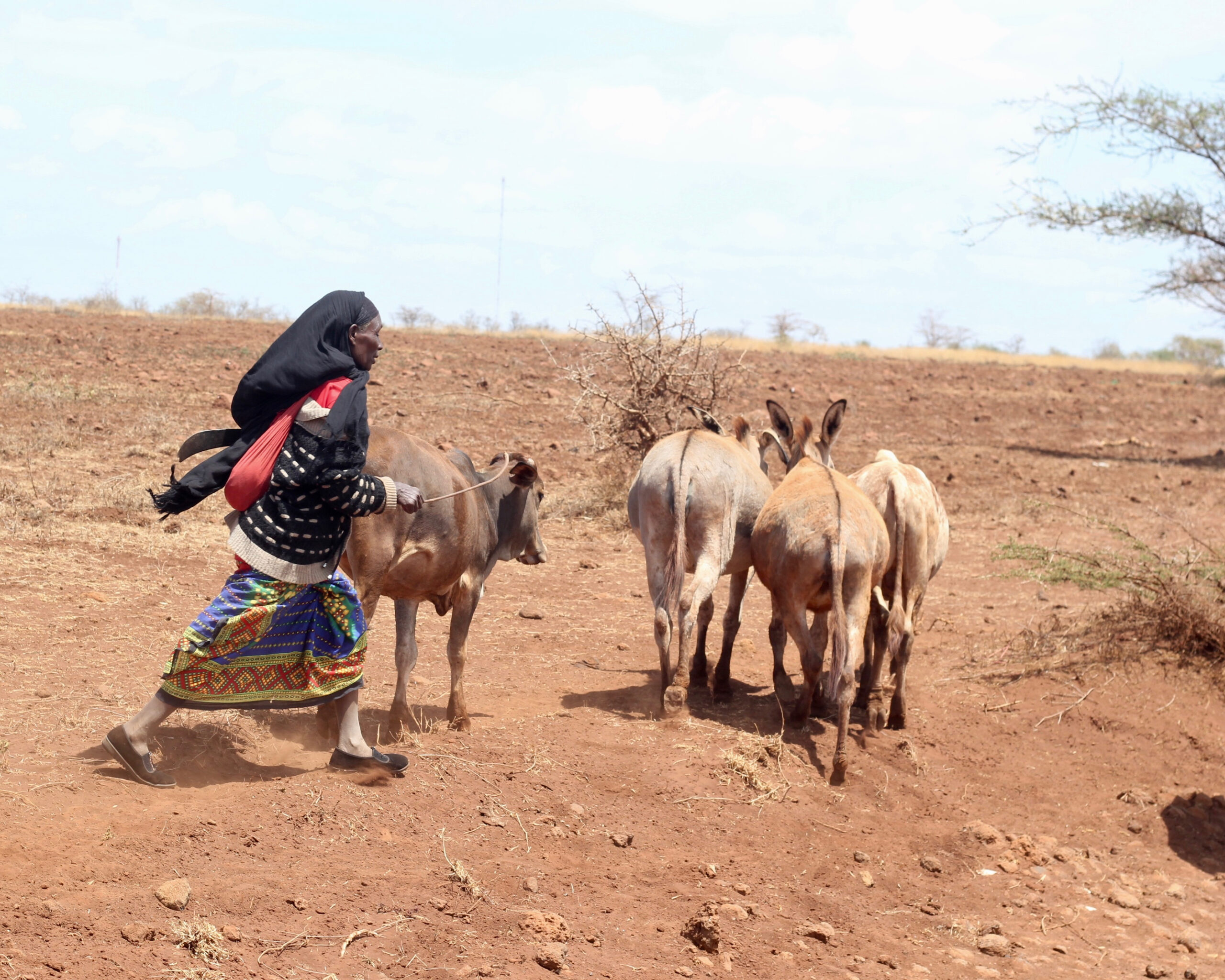Overview
Researchers
Elizabeth Lyons
Assistant Professor of Management at UC San Diego's School of Global Policy and Strategy
Philemon Chelanga
Researcher, International Livestock Research Institute
- Country
- Kenya
- Timeline
- 06/01/2020 - 09/30/2020
- Sample
- 100 pastoralist communities

Credit: Kandukuru Nagarjun
As has been the case for many of the world’s most vulnerable populations, COVID-19 shutdowns substantially disrupted the ability of pastoralists in Kenya to carry out their income-earning activities, threatening their wellbeing and security. To stop the spread of COVID-19, the Kenyan government closed the formal markets pastoralists use to sell livestock, which made selling and buying livestock more difficult. The research team analyzed data from a crowdsourcing platform launched by the International Livestock Research Institute (ILRI) five months prior to the first confirmed case of COVID-19 in Kenya. They track how the COVID-19 pandemic affected the health and economic conditions of pastoralists across 100 communities, finding increased food prices and conflict, as well as reduced food security and mental health.. Forty five percent of respondents state their region is less secure than it was before COVID-19, and this causes them to travel more to avoid conflict (even if they’re traveling less overall and increasingly relying on third-party livestock brokers given market lockdowns). While there were no confirmed cases of the virus among those surveyed, respondents were 50% less likely to report being “very happy” post-COVID-19, and 85% state they are “worried” or “very worried” about the virus, particularly the disruption to livestock trade. While the data does not point to the optimal response to these challenges, households receiving food-aid face less milk shortage, and households receiving cash transfers report a smaller decline in happiness. Results from this study were published in this blog post.
The Agricultural Technology Adoption Initiative (ATAI) allowed researchers to submit off-cycle proposals aimed at helping generate rapid, useful, and responsible research to help individuals and communities fight and respond to the COVID-19 crisis.